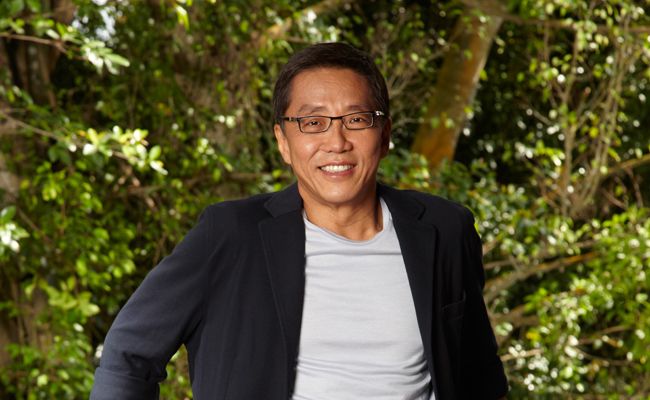Hospitality veteran Ho Kwon Ping shares how the Banyan Tree Group is now looking to bring a buzz to hotel residences with its Cassia brand.

"Bland” and “boring” come to Ho Kwon Ping’s mind when it comes to serviced apartments. “A serviced apartment is, as the word implies, an apartment first; they just happen to service it with cleaning and so on. It’s not a hotel experience,” asserts the executive chairman of Banyan Tree Group.
The extended stay sector is a niche that the award-winning hospitality group is eyeing with its new hotel residences brand, Cassia. Nestled between the hotel and apartment sectors, these one- or two-bedroom units offer flexible living and dining options. “You could stay there for three months or three days, but the experiences that you have would be like living in a really nice, funky boutique hotel as opposed to living in a boring service apartment,” says Kwon Ping.

Five projects are already in development in Phuket, Bintan, Beruwala in Sri Lanka, Australia’s Gold Coast, and Lijiang, China (pictured above). A further seven projects are being planned in Brisbane, New York, Japan, Seychelles, Chiang Mai, Bangkok, and Lang Co in Vietnam.
Cassia joins the Banyan Tree and Angsana brands under the group, which celebrates its 20th anniversary this year and aims to have 66 hotels and resorts, 117 spas and 115 retail galleries across 33 countries by 2017—with a fourth hospitality brand in the pipeline, to be unveiled early next year.
1. How does the creation of Cassia help you meet the needs of today’s traveller?
The global traveller is getting a lot more sophisticated: There are people who want super luxury in total isolation; some look for interactive fun; some for whom luxury isn’t bling-bling but a lot of choices. What’s most interesting is that it’s not at all contradictory that someone would want to stay in Cassia at a particular time and go to Banyan Tree at another time—people do a lot more mix-and-match when they holiday, just like with their fashion choices. It’s a sign of individuality. So having more brands with different attributes makes us more able to satisfy all our guests.

A bedroom at Cassia in Beruwala, Sri Lanka
2. What will the Cassia experience be like?
Something Cassia will offer is “twice the luxury”. It’s a fact people today want a lot of choices. Let’s use coffee as an example: most hotels, even five-star ones, would give you maybe two types of coffee powder and a kettle, that’s about it. Let’s say you have a much smaller Cassia apartment, and we give you a Nespresso coffee machine with a wide selection of coffee capsules. Obviously, that coffee experience is a luxurious one because of the choice you’re given. Luxury can be defined in terms of offering choices.
3. You have more than 30 hotels and resorts today. Any plans for a property in Singapore?
We would love to have a hotel in Singapore, but we haven’t been looking aggressively as it’s not easy. You have to bid for locations that come up, and competition is quite fierce. It’s the big developers, not hoteliers, who bid for land in Singapore, and it’s as a mixed-use package. That’s usually a huge project that includes residential, hotel and retail components. If we were to do it, it would have to be as part of a consortium. Given that we want to be a global company, we are right now deploying our capital quite well with more projects in other locations.
4. Since the opening of Banyan Tree Phuket in 1994, the group has won more that 1,000 awards and accolades. What are you proudest of?
From out of Asia, we managed to create a credible brand that is well received globally. Branding is not a very Asian phenomenon. Asian companies are very strong in contract manufacturing, not in creating hotel brands. We’re also proud of how we have developed what I would call the best example of “rainbow tourism”, where we have clientele from all around the world and our own employees comprise over 50 nationalities. We pride ourselves on this diversity.
This article first appeared in Singapore Tatler July 2014 issue. Get a copy from newsstands or purchase the digital version on Zinio or Magzter.
